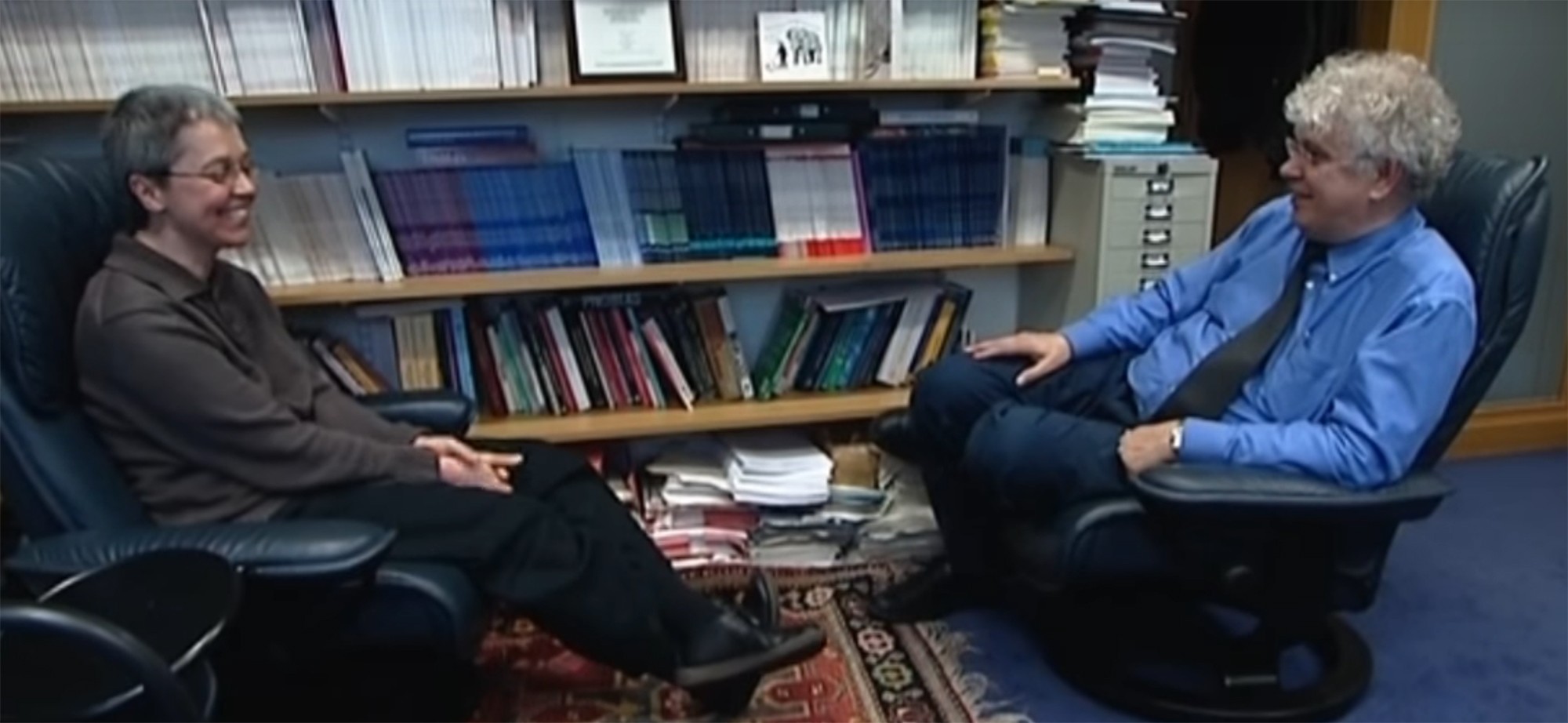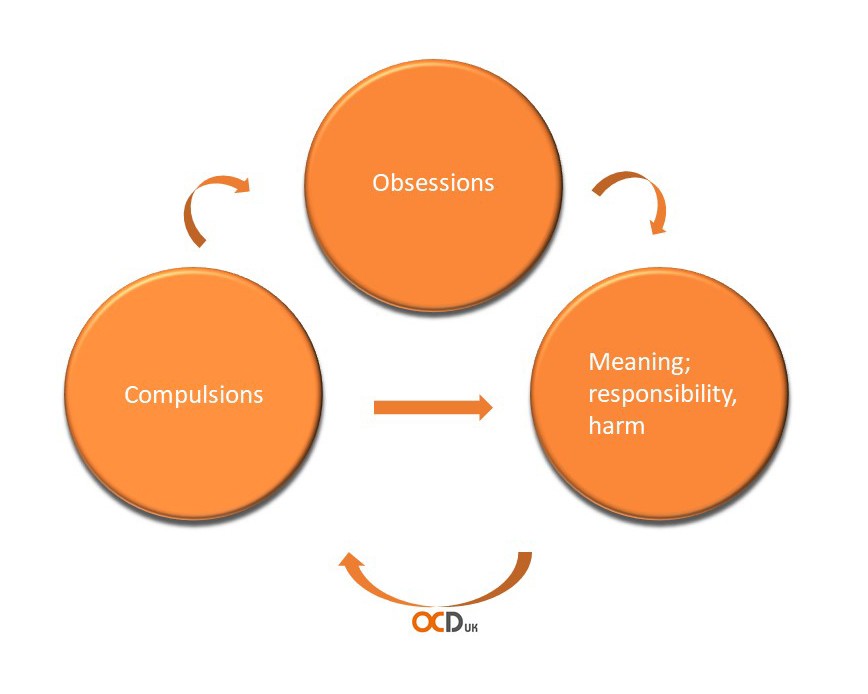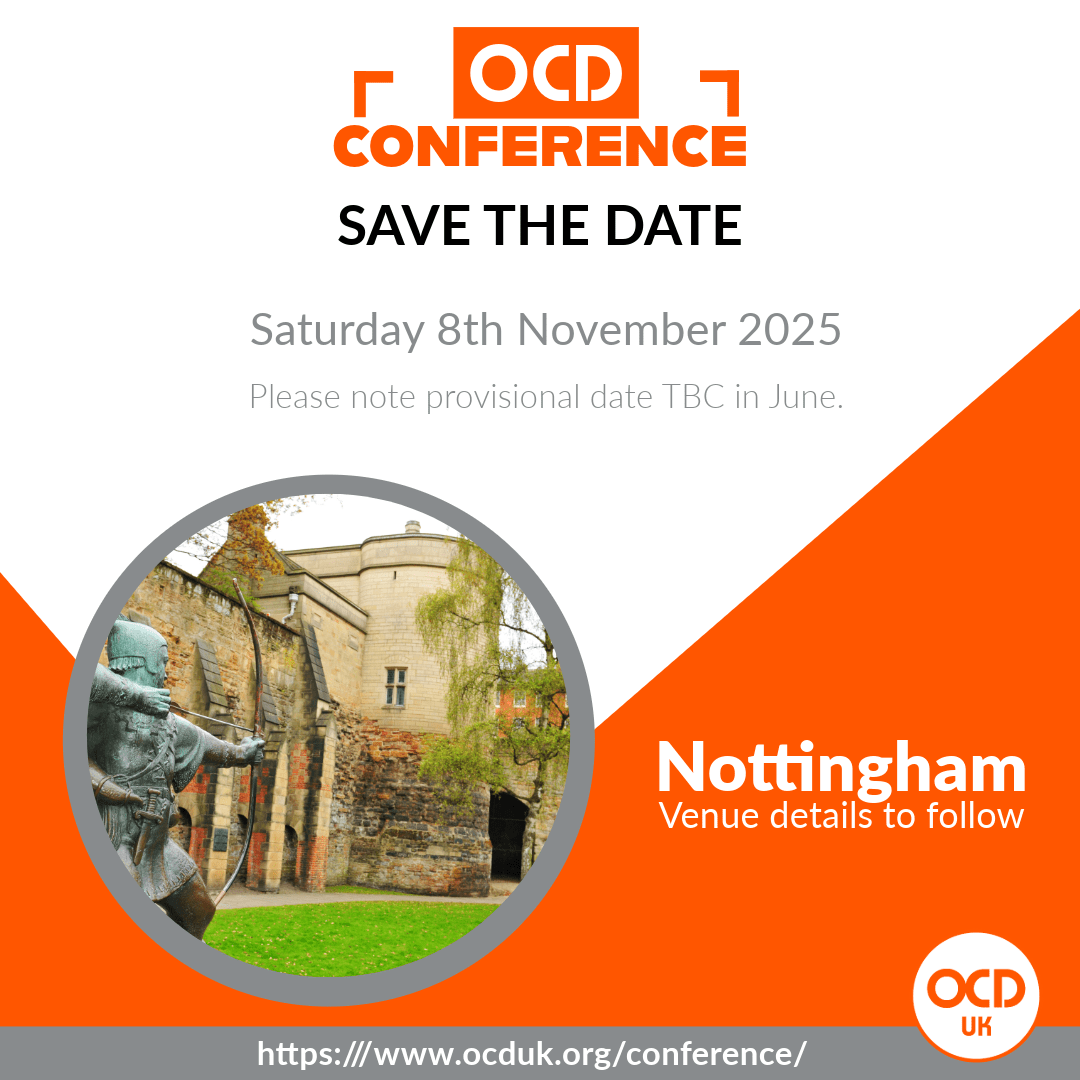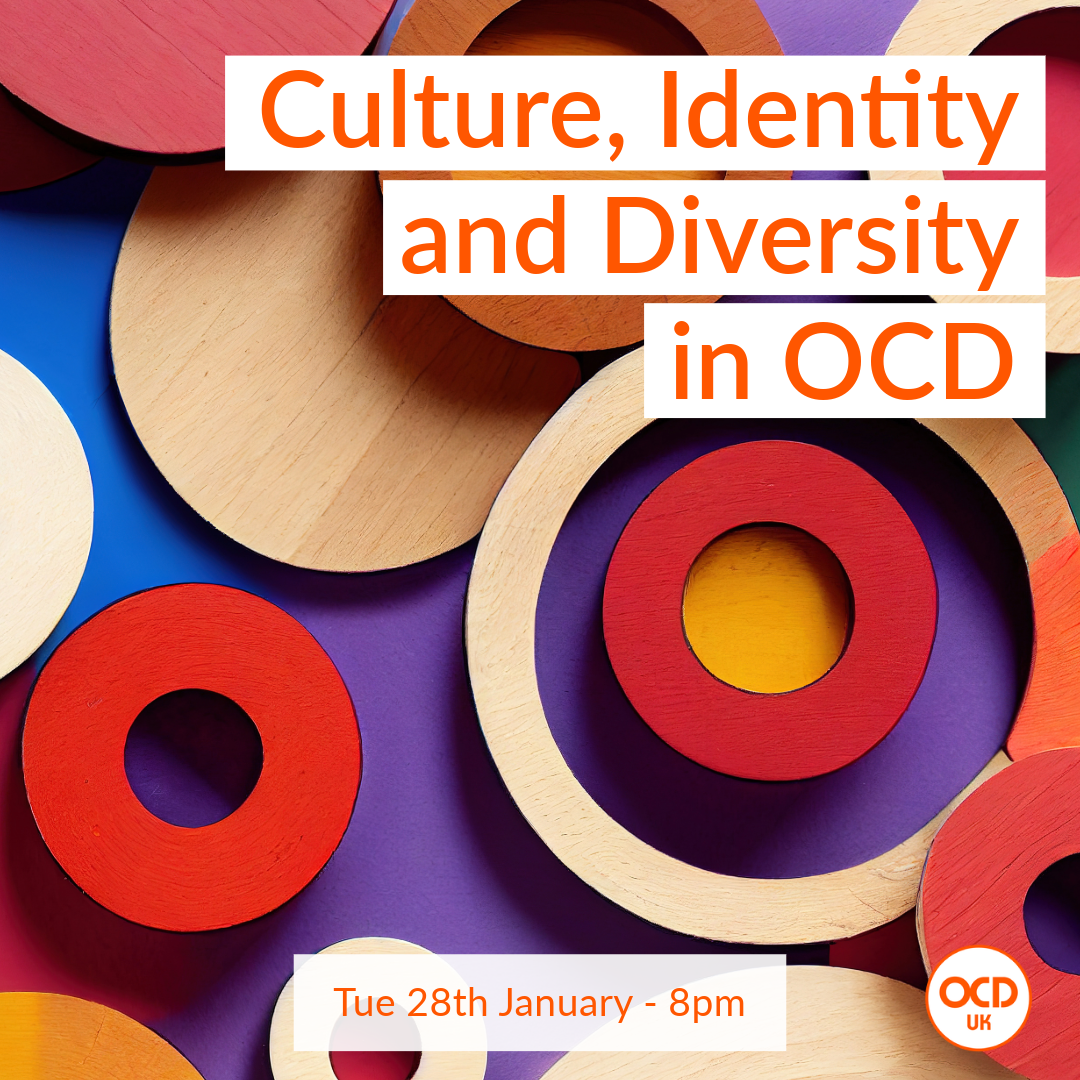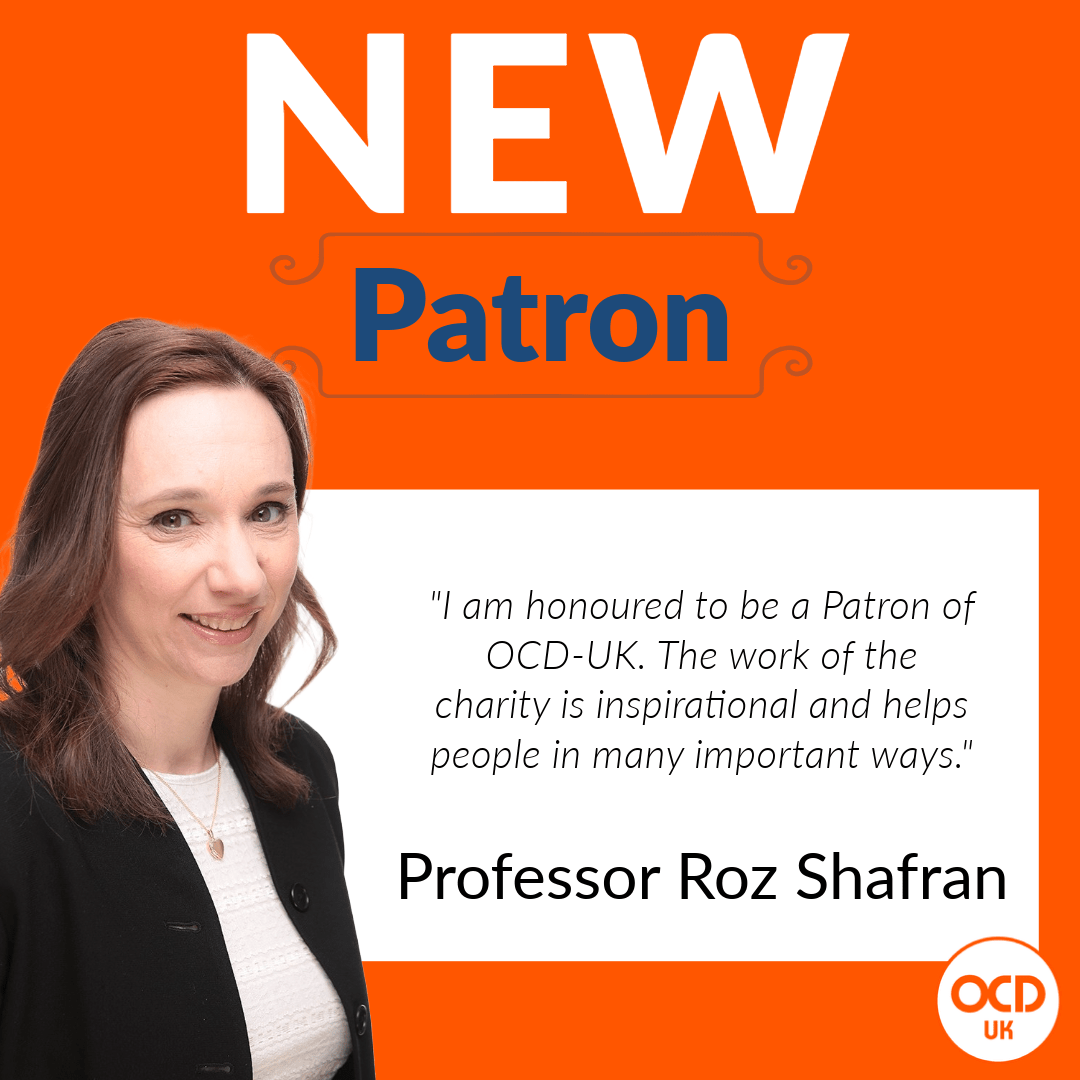One of the most frequent support emails or calls we receive is from people asking “Does this sound like OCD?”. Many of us within OCD-UK know how daunting it can be to seek formal help from a GP or health professional having been through it ourselves, but in order to be formally diagnosed, we do need to reach out
Whilst we’re unable to diagnose people ourselves, that is something beyond our remit and level of qualification, we thought it might be helpful to explain how a diagnosis of OCD might come about and what health professionals might ask you.
This simple OCD cycle image is helpful to understand the four basic aspects of OCD. OCD will nearly always involve these four components, intrusive thoughts (obsessions) leading to anxiety, compulsions (internal or external, including seeking reassurance or avoidance of certain people, places or objects) leading to temporary relief from the anxiety, relief, that may only last for minutes until the next intrusive thought (obsession) occurs. The actual process of OCD is far more complex, and not as straight forward as the OCD cycle image depicts, but we like this OCD cycle image for providing a simple illustration of four of the main elements of OCD.
Regardless of the type of OCD, when you strip away the nature of the worries, the above processes will always be taking place, albeit in a slightly different format.
Of course, such an image isn’t how a health professional will diagnose OCD, but it’s helpful to understand the four key stages of OCD that may be required for a formal diagnosis. We do expand on this image in much more detail in the overcoming OCD chapter.
To some degree OCD-type symptoms are probably experienced at one time or another, by most people, especially in times of stress. However, OCD itself can have a totally devastating impact on a person’s entire life, from education, work and career enhancement to social life and personal relationships as we discussed earlier in the chapter..
The key difference that segregates little quirks, often referred to by people as being ‘a bit OCD’, from the actual disorder is when the distressing and unwanted experience of obsessions and compulsions impacts to a significant level upon a person’s everyday functioning – this represents a principal component in the clinical diagnosis of Obsessive–Compulsive Disorder. If a person’s trait does not cause anxiety or impact or disorder to their life, then it is unlikely to be OCD, although a health professional will need to conduct an assessment to confirm a diagnosis or not.
When someone seeks help for their OCD, healthcare professionals will consider how distressing the symptoms are for that person and how much their life is affected. Generally OCD might be diagnosed if symptoms take more than a hour each and every day.
In terms of what health professionals will look for when assessing and diagnosing OCD, the NICE Guidelines for OCD stated that “the diagnostic criteria for the two main international classification systems, ICD and DSM are virtually identical and must include the presence of either obsessions or compulsions.” The NICE Guidelines then go on to state:
- The patient must acknowledge that the obsessional thoughts, impulses, or images are a product of their mind and are not imposed by an outside person or influence.
- At least one obsession or compulsion must be acknowledged as excessive or unreasonable.
- Furthermore, the obsessions or compulsions must cause marked distress, or significantly interfere with the patient’s occupational and/or social functioning, usually by wasting time.
- Traditionally it has been believed that insight (the ability to recognise the senselessness of the obsessions) is a key feature of OCD. However, there is growing recognition that the level of insight is highly variable. Thus some people with OCD may show stable but low levels of insight, others may show insight when not confronted with a feared situation, but lose this insight when their anxiety is high in situations associated with their obsessive fears.
For those of us with OCD, actually getting that diagnosis will require an assessment with a trained health professional. Usually this can be arranged by speaking to a GP who will refer you to the right part of the NHS for an assessment or you can self-refer for assessment and therapy if you’re in England, we discuss treatment access more in the Overcoming OCD chapter. The assessment with an health professional will take place over the phone (for IAPT services in England) or face-to-face and last about an hour. The health professional will ask a series of questions, either on forms or verbally, to consider whether you may have OCD. They may ask the following questions (as suggested by the NICE Guidelines for the treatment of OCD):
- Do you wash or clean a lot?
- Do you check things a lot?
- Is there any thought that keeps bothering you that you’d like to get rid of but can’t?
- Do your activities take a long time to finish?
- Are you concerned about putting things in a special order or are you very upset by mess?
- Do these problems trouble you?
Don’t worry if these diagnostic descriptions are not similar to what you’re experiencing, OCD covers a vast array of themes and it’s not possible to fully cover them all. The questions above are also merely a guidance and starting point for health professionals, a good assessment will ask far more and relevant questions for your problems.
If you don’t think these questions help explain your OCD, then it can be helpful to prepare a way to explain your OCD symptoms in advance of your assessment.
For those interested in what the two main international classification systems, ICD and DSM say about diagnosing OCD, we have summarised that text below.
In terms of the actual diagnostic criteria, the NICE Guidelines for OCD report the following by the International Classification of Diseases and OCD.
For a definite diagnosis, obsessional symptoms or compulsive acts, or both, must be present on most days for at least two successive weeks and be a source of distress or interference with activities. The obsessional symptoms should have the following characteristics:
- (a) they must be recognized as the individual’s own thoughts or impulses:
- (b) there must be at least one thought or act that is still resisted unsuccessfully, even though others may be present which the sufferer no longer resists;
- (c) the thought of carrying out the act must not in itself be pleasurable (simple relief of tension or anxiety is not regarded as pleasure in this sense);
- (d) the thoughts, images, or impulses must be unpleasantly repetitive.
It is important that we are honest when talking about our OCD, because a health professional can’t help us if they don’t understand what problems we’re experiencing. It’s fair to say that it will be difficult to talk about your symptoms, but your healthcare professional should understand about how distressing OCD can be, and to help we have a GP ice-breaker printout that you can take with you when you consult a health professional.
The GP ice-breaker is for those with OCD fears relating to harm. Whilst most therapists understand more about OCD these days, you may still come across ones that’s fail to differentiate between OCD and ‘intent’/’risk’. You will quickly tell by the facial expressions and questions if your health professional is struggling to understand what you’re talking about. If this is the case please just pass them the GP Ice Breaker and direct them to this paper written by OCD specialists called ‘Risk assessment in OCD’.
WARNING!
There are many online OCD tests, some flippant, but there are some that are intended to be a serious self-diagnostic tools, even on the more respectable OCD websites. These are all notoriously unreliable and should not be taken as any kind of guide or indication that a person suffers with OCD or not. Always consult a trained health professional.
What to read next:

